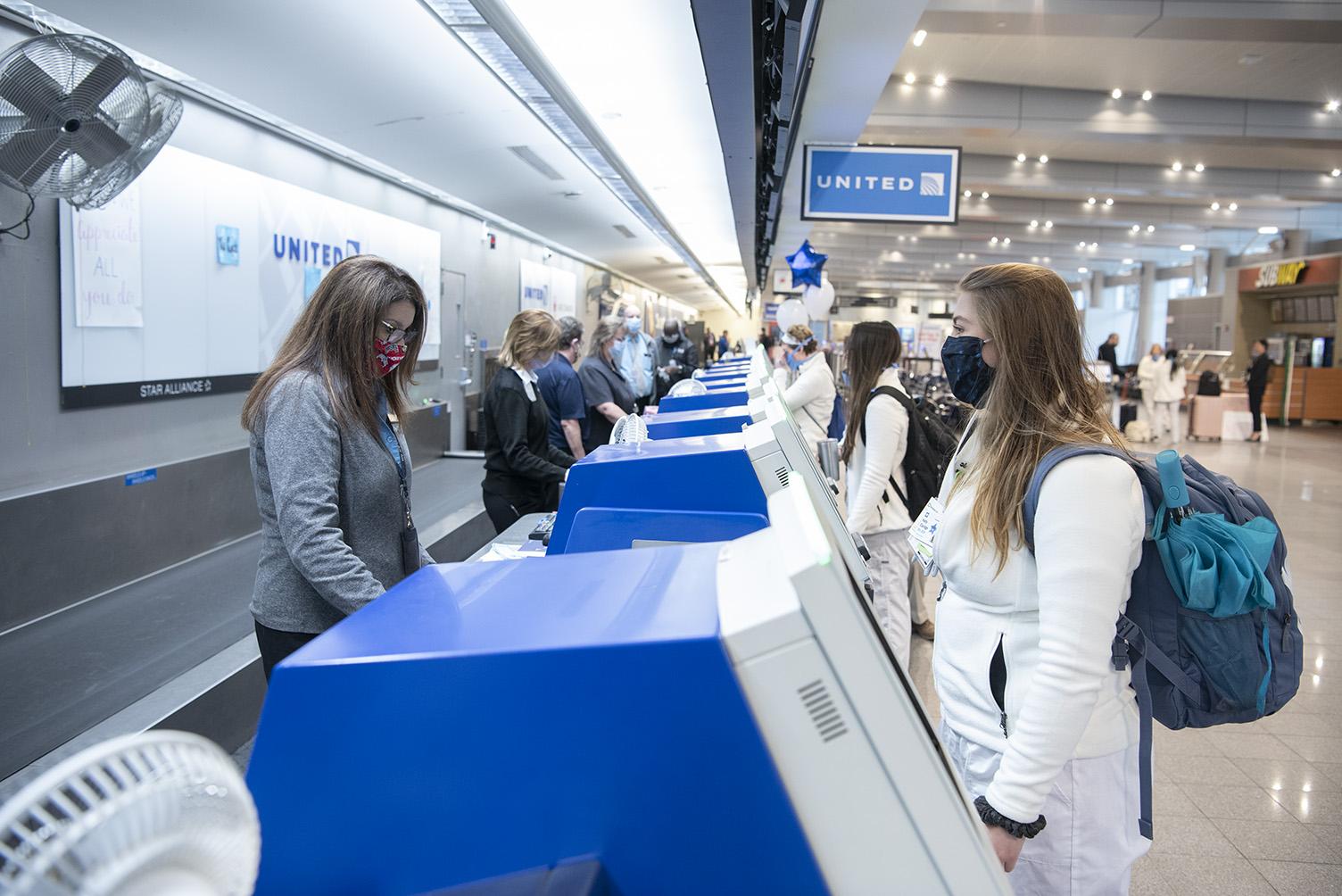
A common set of hygiene safety rules for commercial air travel is being developed, but new standards must be affordable and not deter people from flying.
In his weekly media brief on the status of the airline industry through the COVID-19 crisis, IATA director general and CEO Alexandre de Juniac said the organization was working with ICAO’s new virus task force and with governments, industry partners and the World Health Organization to develop a common set of processes that would apply to passengers and crew as they travel through airports and onboard airliners. The sooner a global harmonized set of hygiene safety measures are implemented, the better, he said.
De Juniac’s April 28 comments come as some individual airlines are beginning to reveal their own heightened safety measures. New York-based JetBlue announced that starting May 4, all its customers will be required to wear a face mask during check-in, while boarding and throughout their flight. JetBlue was already requiring its crews to wear masks while working and said it modeled its policy on U.S. Centers for Disease Control and Prevention guidelines.
“Wearing a face covering isn’t about protecting yourself; it’s about protecting those around you,” JetBlue president and chief operating officer Joanna Geraghty said in a statement. “This is the new flying etiquette.”
Dubai-based Emirates Airline last week announced a set of new travel rules that include pre-allocating seats with vacant seats between individuals or family groups, the wearing of masks and gloves throughout check-in and flight, and limits on cabin baggage.
Other airlines have mandated masks and gloves for crews and check-in staff, but most have not yet required the same for passengers.
IATA wants a common set of hygiene rules, just as similar new security standards were adopted globally after the 9/11 terrorist attacks, including limits on the size of liquid and gel products that can be taken through screening and a ban on knives and scissors.
De Juniac said that industry and governments should converge on hygiene processes that are “harmonized at every airport and on every airline” and expressed confidence that this will happen.
“These practices are key enablers to lifting the travel restrictions and border closures,” he said, but he also indicated that some compromise will be needed so that hygiene measures are affordable and do not deter people from flying.
“If the processes are not harmonized, then they will be a source of enormous extra cost and they will limit activity,” de Juniac said, “We will find the right compromise; we are on it. It is something we are working on and we have a pretty strong proposal to put on the table.”
While he did not give specifics or a timeline, IATA is clearly looking to have some standard rules in place ahead of any partial restoration of airline networks, which has already begun in China’s domestic market and could start in other markets this summer. It therefore seems likely that some announcements on hygiene safety standards could come in May.
Social distancing in airports and on board will be relatively easy to accomplish while load factors are low but will become more challenging as more people fly. Other questions remain on issues such as masks and gloves—if they are required, who provides them—and what will constitute a screening? How can aircraft be deep cleaned between flights and people kept separate during the boarding process while not making turnaround times and queues unmanageable? International traffic pickup is expected to lag months behind domestic travel, but before it does, people will want assurances about quarantine rules and not finding themselves stranded.
“It’s important to avoid spreading the pandemic through air transport, but we also want our industry to remain viable, so we are trying to develop processes that are not damaging to the economics of our industry,” de Juniac said.
De Juniac also announced a new date for its 75th annual meeting, which was originally scheduled for June in Amsterdam. He said the event will now take place 22-24 November, still in Amsterdam with KLM the host airline. He said the organization had debated whether to make this year’s event a virtual conference but opted for a real event to demonstrate the resilience of aviation.





